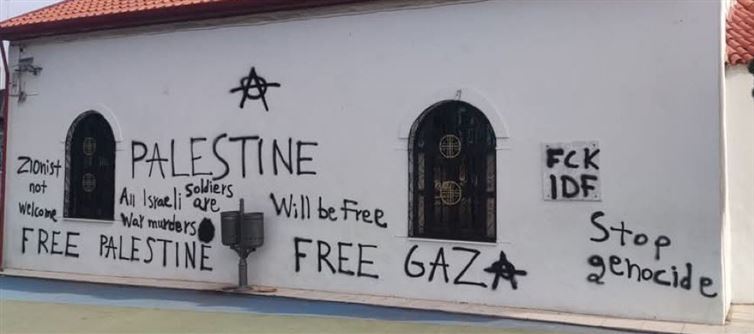
This pattern echoes throughout history: when conflict in the Middle east intensifies, the rhetoric and actions often spread globally, affecting communities far from the epicenter. In this case, a sacred Christian site in a predominantly Orthodox Christian country became a canvas for ideological protest, underscoring how regional strife can fuel targeted acts even in distant, relatively peaceful societies.
The phrase “First the saturday people, then the sunday people” is often cited to reflect a dangerous ideological current within radical Islamist thinking—one that sees Jews and Christians as successive enemies. While not representative of all Muslims by any means, this slogan is a chilling reminder of how extremist narratives can fuel intolerance and violence against both groups. Historically, attacks on Jewish communities have often been precursors to broader campaigns of religious persecution. In recent decades, Christian minorities in the Middle East—such as Copts in Egypt, Assyrians in Iraq, and Maronites in Lebanon—have suffered displacement, violence, and marginalization, paralleling anti-Jewish hostility.
What happened in Athens should not be dismissed as isolated vandalism. It may be part of a larger, global trend in which religious minorities and symbols are increasingly targeted by radical elements seeking to spread fear and sow division. If societies fail to respond with clarity and resolve—both in protecting vulnerable communities and in affirming shared values of religious freedom and coexistence—then the space for such extremism grows. As history has shown, attacks on one faith community rarely stop there; they often serve as harbingers of deeper societal fractures and broader waves of persecution.




 click and follow Indiaherald WhatsApp channel
click and follow Indiaherald WhatsApp channel